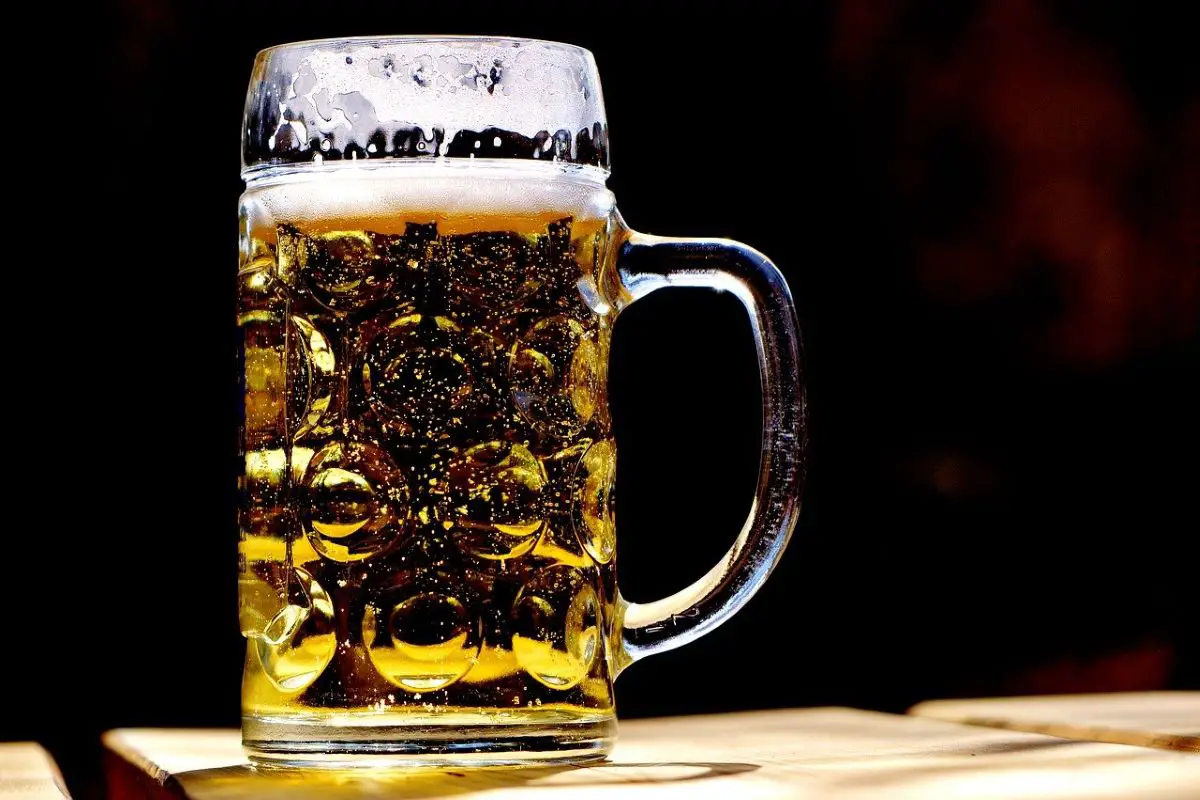No one likes a stale beer, the bitter flavors that once existed have faded and the once crisp taste has turned flat. A disappointing purchase when you finally decide to crack it open. So, does beer expire? Well, there are elements that can affect the quality of your beer over time, most importantly oxygen. The oxygen will cause chemical reactions in your beer through a process called oxidation which will previously change the flavor of your brew.
Although oxygen can degrade the shelf life of your beer, other than the expired bottle cap or a growler that hasn’t been properly sealed these elements won’t be an issue of concern when trying to determine if beer is still safe to drink.
So to answer the question does beer expire? Yes, it does.
The best place to store beer is in your refrigerator, which keeps it at a consistent temperature and out of direct sunlight. When you keep your beer in the fridge, it will stay fresh for about five months before the taste deteriorates. If you keep the beer outside of refrigeration, it will start to lose its flavor after one to two months. Beer doesn’t go bad just because it gets old; heat and light can also have an effect on taste.
Is It Fine To Drink Expired Beer?
As anyone who’s ever had a party knows, there’s nothing worse than running out of beer. But if you think you’re in a bind and don’t want to go out to buy more, maybe your expired beer is still good.
The answer is yes! Yes, it is fine to drink expired beer—if it was stored correctly. In fact, some of the most popular beers in the world are designed to age well.
A few things that can cause an older beer to go bad include: light exposure, temperature fluctuations, and poor storage. If a beer has been stored away from these factors, there is no need not to drink it.
If you have an IPA or other hoppy beer, though, that might be a different story. The hops can get really bitter with age and make the beer taste terrible; this is because the hops are on the shelf for too long. But if you store it properly in a dark place at room temperature or below (not in the refrigerator), there’s nothing wrong with drinking expired beer.
Can You Drink Out Of Beer Two Years Out Of Date?
You probably shouldn’t drink beer that is 2 years out of date. To answer the question does beer expire, it can turn skunky. This is the result of the breakdown of hops. This breakdown happens after about 4 months, but it can happen faster if your beer is exposed to light or elevated temperatures.
Beer can also go flat—this is because of oxidation, a process that begins when the beer has been in its bottle for a long time. When this happens, the flavor and aroma of your beer will be affected; it might also taste stale.
After How Long Does A Beer Expire?
Beer is a type of beverage that is commonly made through a process of fermentation. It is most commonly consumed in the United States, China, and Brazil.
There are several types of beer, including pilsners and stouts. Beer can be either alcoholic or non-alcoholic, depending on how you make it.
But after how long does beer expire? Most beers will last for up to two years before they expire, but some may last longer than this. The best way to tell if your beer has gone bad is to smell it and taste it with caution. If there are any signs of mold or other contamination, do not drink the beer!
How Long Does Beer Last?
Think of the expiration date on beer as more of a suggestion than a firm rule. It’s not that beer goes bad in a certain amount of time as much as it becomes less flavorful and palatable over time.
Because of this, some people believe that expired beer is safe to drink; they just won’t enjoy the taste. This is true in some cases, but there are many other factors to consider before drinking expired beer.
Keep in mind that beer can still go bad even after it’s bottled or canned. When it comes to the shelf life of an unopened beer bottle, it can last for six to nine months past the expiration date or about two to three months past the “best by” date on the label.
So, yes, expired beer is safe to drink in many cases—but not always—and there are a few ways you can tell whether your old brew is still good or should be tossed out.
How Can You Tell if Your Beer Has Expired?
While beer certainly won’t harm you if it’s past its expiration date, it’s still nice to know when the time has come to give up and let the beer go.
If you have a can of beer, you can look for an expiration date on the bottom. If there isn’t one, you can check the manufacturer’s website and search for a code that’s printed on the can itself. You may find an expiration date on the inside of a bottle cap as well.
If none of this works, or you are still unsure that your beer has expired, there are some physical signs of expired beer to look out for:
- A skunky smell (this is due to light interacting with certain chemicals in hops)
- Off flavors such as vinegar, sourness, or even just a bitter taste
What Is The Best Way To Store Beer So It Doesn’t Go Bad?
Many beer enthusiasts wonder what the best way to store beer is. If you do not want your beer to go bad, you should store it upright, in a cool place, out of direct sunlight, and away from the freezer—the temperature should stay between 35- and 65-degrees Fahrenheit.
Upright Beer
Beer that is stored upright is more likely to stay fresh than beer that is stored lying down on its side. The reason for this is that yeast will settle to the bottom of the bottle if it is stored upright, while if it is stored on its side it will come into contact with sugary liquid and be activated—this can cause a strange taste in the beer.
Is It Important To Keep The Beers Cold?
There are a few reasons why it’s so important to keep your beer cold, and they all have to do with the chemical reactions that take place when beer warms up.
First of all, if you like your beer to have a nice head on it, you have to be aware that that head is made of two things: proteins and fatty acids. Proteins are what make the foam “stable” and give it some body. But as beer warms up, those proteins coagulate and fall out of suspension; this can make the foam collapse and give your beer a weird texture.
Beer foam is also made up of fatty acids—yes; even in light beers—and those fatty acids can go rancid if they’re allowed to warm up too much. That means that even though your beer may still taste okay, there may be unpleasant flavors lurking under the surface, waiting for you to experience them.
Finally, beers with a higher alcohol content tend to warm up faster and suffer more flavor loss than lighter beers (in addition to losing their foamy goodness).
Are Aged Beers Better?
When a beer is aged, it undergoes chemical changes in flavor and aroma, usually due to oxidation. Some beers are designed to be aged, while others are not. Most beers do not benefit from aging—in fact, they can become stale.
The aging process for beer creates a smoother flavor and reduces sharpness, but the beer can also lose its vibrancy. Beer that has aged usually have a richer body, but they can also develop a sourer taste.
Aged beers can develop caramel flavors and lose some hop character in the process. Aged beers can also be less carbonated than fresh ones, which can make them seem less vibrant.
You should only age certain types of beer: barley wines, doppelbocks, imperial stouts, old ales and strong ales are good candidates for aging. The best time frame for aging these beers is between one and three years.
While some people enjoy aged beers because they have a smoother flavor that seems more refined; others prefer fresh beer because of the bright flavor profile and effervescence.
Conclusion
Overall, beer is a great drink to relax with after a long day. If you want the best flavor, it’s important to keep the beer in good condition and make sure it hasn’t expired before consuming. Luckily, there are many ways to tell if your drink has gone bad or if you’re getting ready to consume beers past their prime. Cheers!
You May Like These Articles As Well:
Does Champagne Expire? Let’s Find Out
What Is The Drinking Age In Mexico? What To Know Before You Arrive!
 Being Human
Being Human




